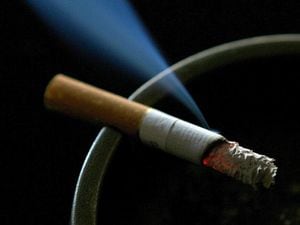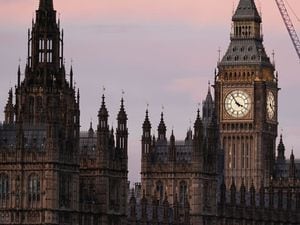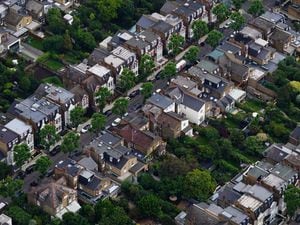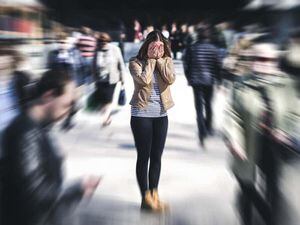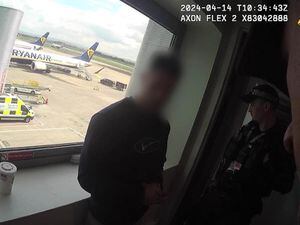Timeline of the battle with coronavirus
Here are the key dates and events of the Covid-19 outbreak.
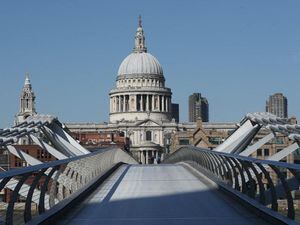
As 2020 draws to a close, here are the key dates and events of the coronavirus outbreak.
– January 23: Health Secretary Matt Hancock tells the House of Commons that the UK is “ready to respond appropriately” to any cases of coronavirus that emerge.
– January 27: Mr Hancock tells people who have returned to the UK from coronavirus-hit Wuhan in China to “self-isolate” for 14 days even if they have no symptoms.
He said officials cannot be 100% certain the virus is not spread by people who are not displaying symptoms.
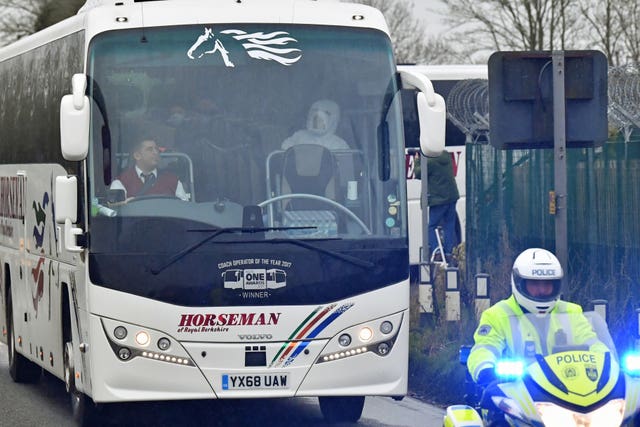
– January 31: The first coronavirus cases are reported in the UK when two members of the same family – a University of York student and a relative – test positive for the virus.
– February 10: Four more patients in England test positive for coronavirus, taking the total number of cases in the UK to eight.
– February 23: Four Britons rescued from the Diamond Princess cruise ship test positive for the illness in the UK, taking the total number of confirmed cases to 13.
– February 27: The first case of Covid-19 is diagnosed in Northern Ireland, while two more people test positive across the rest of the UK – taking the total number to 16.
– February 28: A British tourist from the Diamond Princess cruise ship becomes the first Briton to die after contracting coronavirus.
– March 5: A patient with underlying health conditions becomes the first person in the UK to die after testing positive for Covid-19.
Cases of coronavirus in the UK more than double in 48 hours, with 116 people testing positive, and the country moves towards the “delay phase” of tackling the virus.
– March 10: Health minister Nadine Dorries becomes the first MP to be diagnosed with coronavirus.
– March 12: London’s FTSE 100 Index suffers its biggest one-day fall since 1987 with more than £160 billion wiped off the value of blue chip stocks amid Covid-19 carnage on global markets.
– March 12: Scores of major sporting and cultural events are suspended along with local elections as the UK’s coronavirus death toll rises to 11.
– March 14: Ten more patients die with coronavirus in England, taking the UK death toll to 21, while the US government imposes a ban on travel from the UK and Ireland.
British food retailers urge customers to shop responsibly following widespread panic-buying of essentials, including toilet paper, hand sanitiser and pasta.
Meanwhile, a newborn baby in England who tests positive for coronavirus is believed to be one of the world’s youngest patients with the disease.
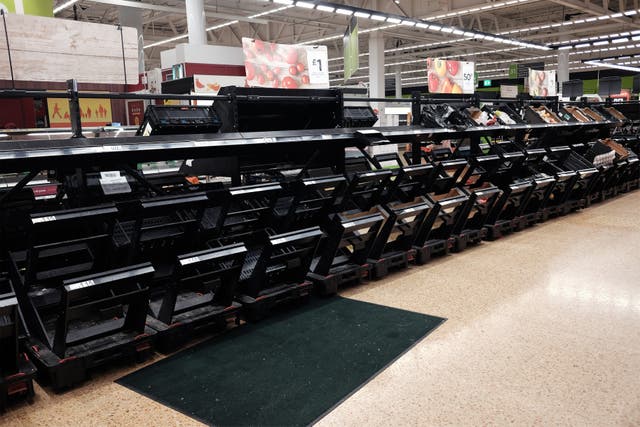
Downing Street announces it will hold daily press conferences fronted by Boris Johnson or a senior minister to update the public on the fight against the outbreak.
– March 16: The Imperial College Covid-19 response team warns around 250,000 people will die in Britain unless more draconian measures are adopted.
In the first daily press conference, Mr Johnson calls on people to stay away from pubs, clubs and theatres and to avoid all non-essential contacts and travel.
– March 17: The NHS moves to cancel all non-emergency surgery, while Chancellor Rishi Sunak unveils a package of financial measures, including loans worth £330 billion, to help businesses through the coronavirus crisis.
– March 18: It is announced that schools across the UK will close to all pupils except those of key workers, as the coronavirus death toll climbs to 104.
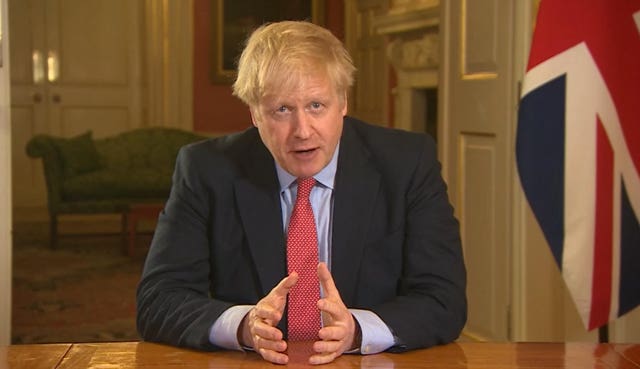
Mr Sunak sets out the coronavirus job protection scheme, with the Government covering 80% of the wages of staff not working, up to £2,500 a month.
– March 23: Mr Johnson tells the UK public that they will only be allowed to leave their homes for limited reasons, including food shopping, exercise once per day, medical need and travelling for work when absolutely necessary.
All shops selling non-essential goods are told to close, gatherings of more than two people in public are banned, events including weddings – but excluding funerals – are cancelled.
Foreign Secretary Dominic Raab tells Britons travelling abroad to return home while they still can.
– March 24: Mr Hancock reveals that a new Nightingale hospital – with a capacity of 4,000 – is being prepared at the ExCeL Centre in London.
A scheme is launched to recruit 250,000 volunteers to help the NHS but more than half a million people apply in just two days.
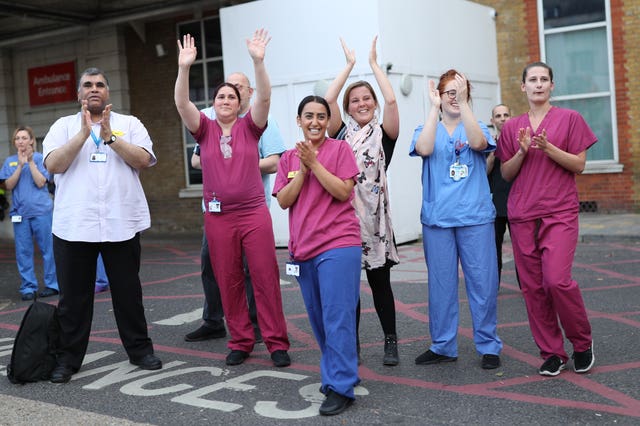
Sweeping emergency powers to tackle Covid-19 are set to become law after clearing the House of Lords without amendment.
– March 26: An 84-year-old man becomes the first prison inmate to die of Covid-19.
The UK becomes the largest single contributor in the search for a coronavirus vaccine, pledging £210 million in aid funding.
A support package for the self-employed is announced – covering an average of 80% of earnings over the past three years.
The Clap for Carers campaign begins, kicking off a weekly national applause for frontline workers.
– March 27: Mr Johnson and Mr Hancock test positive for Covid-19, while chief medical officer Professor Chris Whitty says he has symptoms and is self-isolating.
– March 28: Amged El-Hawrani, a 55-year-old consultant, becomes the first frontline NHS hospital worker confirmed to have died after testing positive for coronavirus.
– April 2: The Prime Minister comes out of self-isolation for a brief appearance at the door of No 11 Downing Street to join the clap for key workers.
Mr Hancock sets a goal of reaching 100,000 tests for coronavirus per day by the end of April.
A million confirmed cases of Covid-19 are recorded across the world, according to figures collated by Johns Hopkins University in the US.
– April 4: Sir Keir Starmer is elected leader of the Labour Party.
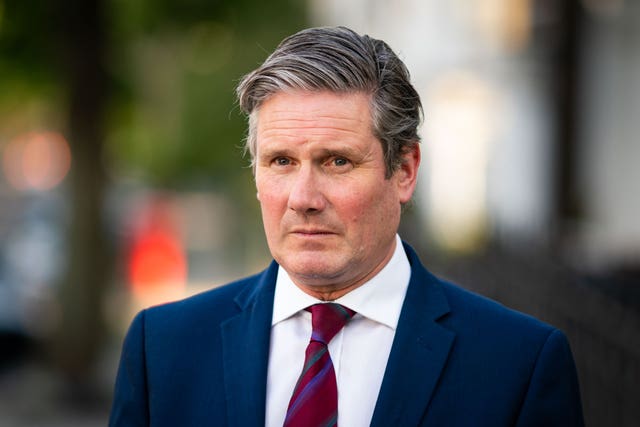
Downing Street says the Prime Minister has been admitted to hospital for tests as a “precautionary step” as his symptoms persist.
– April 6: Downing Street says Mr Johnson’s condition has worsened and he is moved to St Thomas’ Hospital’s intensive care unit.
Foreign Secretary Dominic Raab deputises for Mr Johnson.
The number of people who have died in hospital after testing positive for coronavirus in the UK rises beyond 5,000.
– April 7: Downing Street says the PM’s condition remains “stable” and he is in “good spirits”. He is later moved from intensive care back to the ward.
The first patients are admitted to the NHS Nightingale hospital in London.
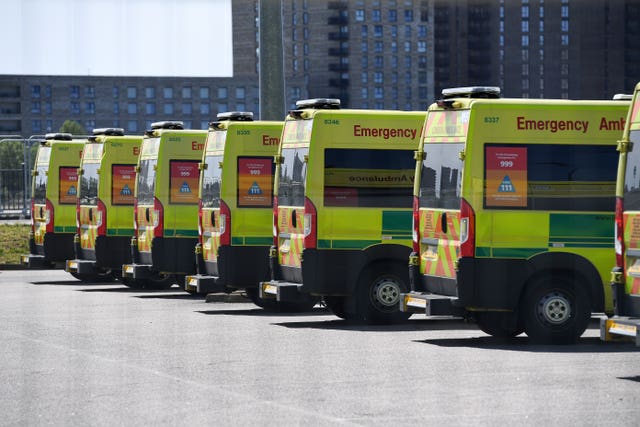
– April 10: The worldwide death toll linked to coronavirus hits 100,000, according to Johns Hopkins University.
– April 12: Mr Johnson is discharged from hospital and will continue his recovery at Chequers, Downing Street says.
The hospital death toll of people who have tested positive in the UK passes the 10,000 mark.
– April 13: Care sector bosses say daily death tolls are “airbrushing out” hundreds of elderly people who have died at care homes.
– April 14: Mr Sunak warns that the Government will not be able to protect every UK business and every household during the pandemic, adding: “These are tough times and there will be more to come.”
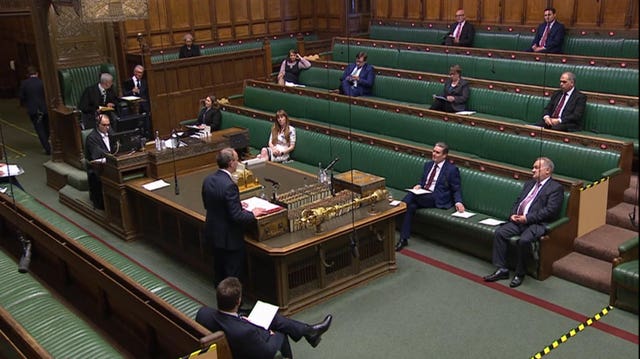
– April 18: More than 15,000 people are reported to have died in hospital in the UK after testing positive.
– April 20: The Duke of Edinburgh makes a rare statement, praising those tackling the pandemic across the UK and keeping essential services running.
Downing Street says ministers and officials are working around the clock to ensure frontline NHS staff get the correct PPE, amid mounting frustration over a lack of supplies.
– April 22: For the first time in British parliamentary history, MPs contribute to Prime Minister’s Questions via video-link.
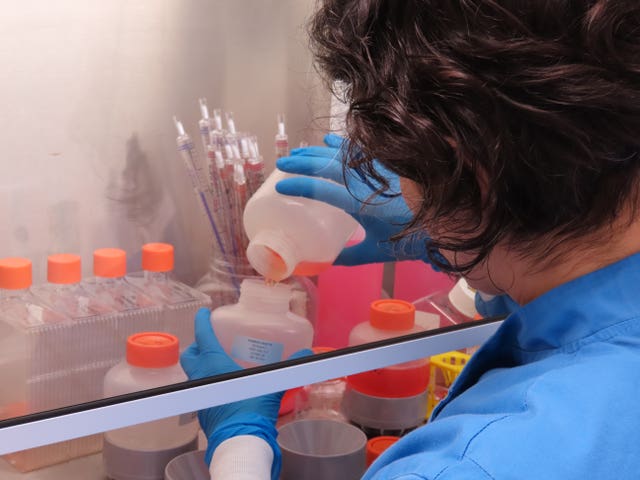
The first people are injected as part of human trials in the UK for a coronavirus vaccine, led by Oxford University, while Mr Hancock announces the new NHSX app for contact tracing.
– April 27: The Prime Minister is back in Downing Street and “in charge” of the Government’s response to the outbreak.
– April 28: Mr Johnson vows that key workers who have lost their lives in the pandemic will not be forgotten, as a national minute’s silence is held in their honour.
– April 29: Data included in the Government’s daily updates for the first time shows 26,097 people have died in hospitals, care homes and the wider community in the UK after contracting Covid-19, Public Health England (PHE) says.
Mr Johnson’s fiancee, Carrie Symonds, gives birth to a boy they name Wilfred.
– April 30: In his first Downing Street press conference since being admitted to hospital, Mr Johnson says the country is now “past the peak of this disease”.
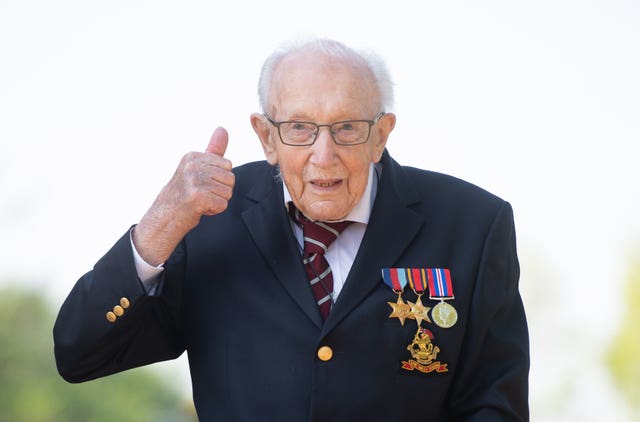
– May 1: Mr Hancock says the Government has met its target of 100,000 coronavirus tests in a day by the end of April after carrying out 122,347 on April 30.
– May 3: Transport Secretary Grant Shapps says the contact tracing app will be piloted on the Isle of Wight before being rolled out more widely later in May.
– May 4: It is announced the first NHS Nightingale field hospital – at London’s ExCeL centre – will be placed on stand-by.
– May 5: The UK’s declared death toll from coronavirus rises to more than 32,000, passing Italy’s total and becoming the highest in Europe.
– May 6: Mr Johnson sets a new daily testing target of 200,000 by the end of the month as he says he “bitterly” regrets the Covid-19 crisis in care homes and is frustrated about problems supplying PPE.
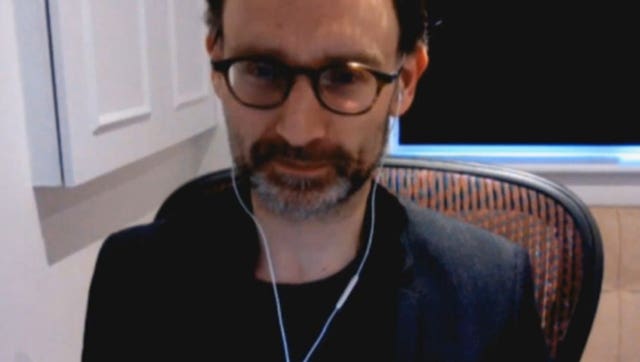
– May 7: Black men and women in England and Wales are more than four times more likely to die a coronavirus-related death than white people, analysis by the Office for National Statistics (ONS) suggests.
Former TalkTalk chief executive Baroness Dido Harding is appointed to lead the contact tracing programme.
– May 10: Mr Johnson announces the first easing of England’s lockdown, telling people they are allowed to sunbathe in parks and leave the house to exercise more than once a day.
He says England may be in a position “to begin the phased reopening of shops” and get primary pupils back to school in steps staggered by year groups “at the earliest by June 1”.
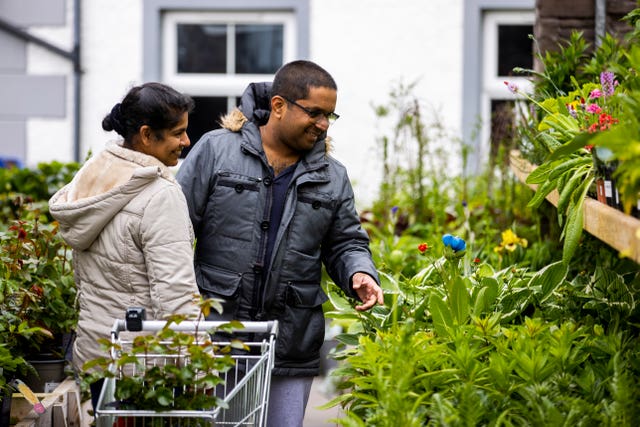
People must keep two metres away from others and are also encouraged to wear face coverings in enclosed places.
– May 12: The Chancellor says the furlough scheme, which is supporting 7.5 million jobs, will be extended until the end of October, but employers will be expected to pick up a share of the bill from August as the economy reopens.
– May 13: Mr Johnson announces a £600 million package for coronavirus infection control in English care homes as he admitted that the number of deaths among residents has been “too high”.
– May 14: England’s deputy chief medical officer, Professor Jonathan Van-Tam, says frontline workers, including those in the NHS, will be the first to get a new antibody test for Covid-19.
– May 17: The Government invests a further £84 million in the hunt for a vaccine, supporting teams at Oxford University and Imperial College London.
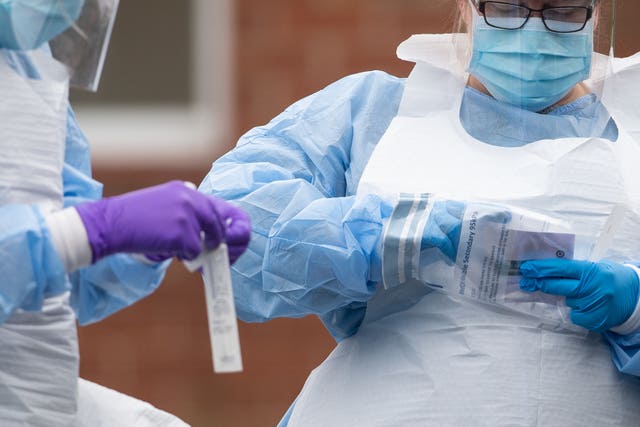
– May 20: A testing and tracing system, seen as the key to easing the lockdown, will be up and running by June 1 – but the rollout of the contact tracing app will come later, says Mr Johnson.
He says 25,000 staff will be in place by the start of June and they will be capable of tracking the contacts of up to 10,000 new Covid-19 cases a day.
– May 22: Home Secretary Priti Patel announces plans for people arriving in the UK from overseas to undergo a 14-day quarantine period from June 8.
Reports suggest that Mr Johnson’s senior aide, Dominic Cummings, allegedly broke the Government’s lockdown rules when he was spotted at his parents’ property in Durham, where he was recovering from coronavirus symptoms after travelling from his London home with his wife, who also fell ill, and son.
– May 23: A second eyewitness tells newspapers they saw Mr Cummings a week earlier in Barnard Castle, a popular tourist location 30 miles away from Durham, during the period he was believed to be self-isolating.
– May 24: Mr Johnson says Mr Cummings “acted responsibly, legally and with integrity”, and “any parent would, frankly, understand what he did”.
Mr Johnson confirms there will be a phased reopening of England’s primary schools.
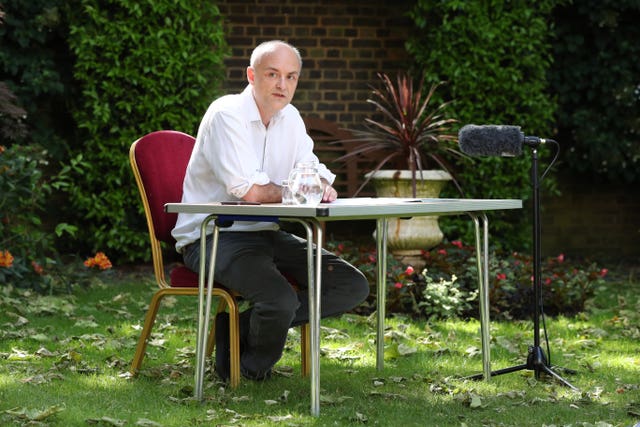
Mr Johnson announces plans for shops across England to open in June if they can meet the coronavirus guidelines to protect shoppers and workers.
Outdoor markets and car showrooms could open from June 1 and all other non-essential retailers – such as those selling clothes and books – will be allowed to open from June 15, provided the Government’s five tests are met.
– May 26: Doctors are now able to prescribe the drug remdesivir, which has been shown to shorten recovery time, to those who have severe Covid-19 infection.
– May 28: NHS Test and Trace officially launches across England with the help of 25,000 contact tracers, while an accompanying app is still delayed by several weeks.
Mr Johnson announces groups of up to six are allowed to meet outside.
– May 29: A final self-employment coronavirus grant is to be made available and businesses must start paying towards the worker furlough scheme from August, Mr Sunak announces.
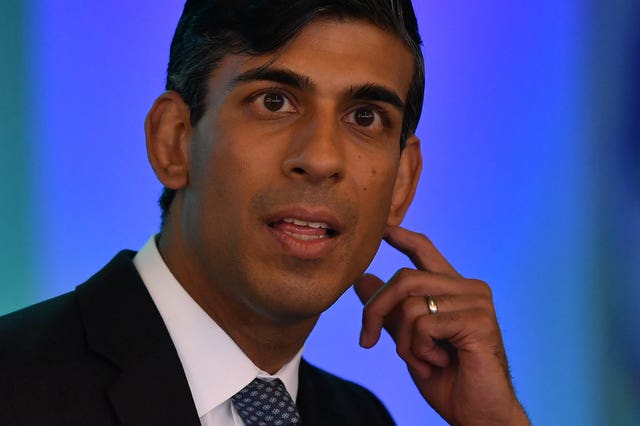
At the same press conference, Culture Secretary Oliver Dowden announces that elite sport events will begin behind closed doors from June 1.
– May 31: The target to build testing capacity to 200,000 per day in the UK has been reached a day early, according to Mr Hancock, with a total of 205,634 tests available.
– June 1: Lockdown measures are eased, with school children in England in Reception, Year 1 and Year 6 returning to the classroom.
– June 2: MPs approve the Government’s plan to end virtual voting in the Commons.
– June 5: Housing Secretary Robert Jenrick announces a two-month extension to the Government’s halt to evictions from social and private rented properties.
Meanwhile, the Health Secretary urges people not to break lockdown rules by attending protests planned following the death in the US of George Floyd.
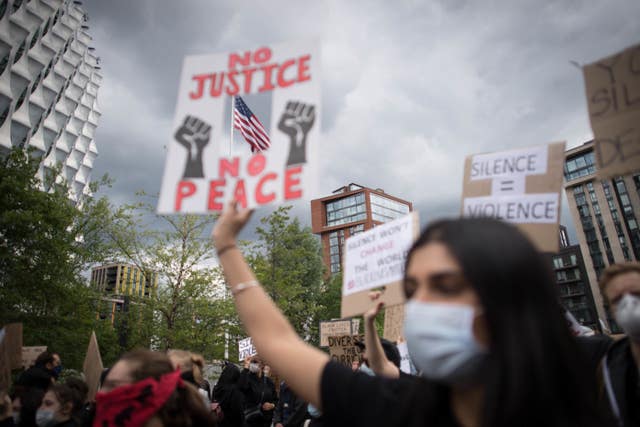
Places of worship reopen for private prayer, while some secondary school pupils have begun returning to their classrooms.
– June 16: The cheap steroid dexamethasone is hailed as a major breakthrough as a study suggests it is the first drug to reduce deaths from coronavirus.
– June 18: Apple and Google take over the design of the Track and Trace app from the NHS’s digital arm NHSX as the Government abandons its own app.
– June 19: The UK’s chief medical officers agree to downgrade the coronavirus alert level from four to three after a “steady” and continuing decrease in cases in all four nations.
– June 23: The Prime Minister holds the final daily coronavirus press conference, but reassures the public it will not be the last time they hear from the Government and its advisers.
Meanwhile, the first healthy volunteer receives a “small dose” of a potential vaccine developed by researchers at Imperial College London.
– June 26: Mr Johnson warns people against “taking liberties” with social distancing rules after thousands flocked to beaches during the heatwave.
The Department for Transport announces that public transport services in England will be ramped up, while ministers confirm the requirement to quarantine for two weeks will be scrapped for a list of popular destinations.
– June 29: A local lockdown is imposed on Leicester by Mr Hancock following a spike of coronavirus cases in the city.
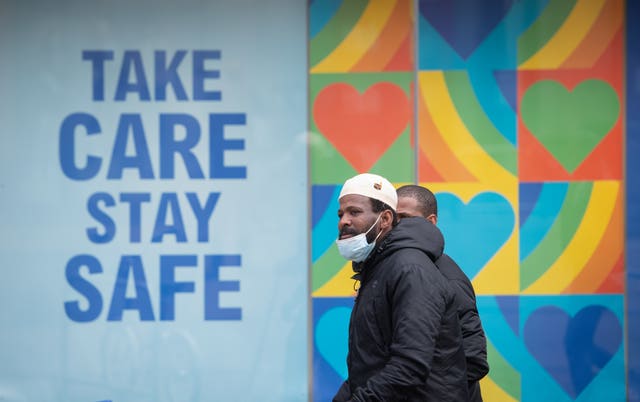
– July 3: A list of 73 countries and territories where English tourists can visit without self-isolating on their return is published, including popular short-haul destinations such as Spain, France and Italy.
– July 4: Pints are poured in pubs, and couples finally say “I do” as lockdown restrictions are eased across England.
– July 9: Boots says it expects to cut more than 4,000 jobs as part of action to mitigate the “significant impact” of Covid-19, just hours after John Lewis announced plans to shut eight stores, putting around 1,300 jobs at risk.
– July 13: Beauty salons, nail bars and tattoo shops in England welcome customers for the first time in four months following the relaxation of social distancing measures.
– July 16: Britain, the US and Canada accuse Russian spies of targeting scientists seeking to develop a coronavirus vaccine.
Mr Hancock announces a partial lifting of lockdown measures in Leicester, but restrictions on non-essential travel and only having social gatherings of up to six people remain in force.
– July 17: Mr Johnson eases the work-from-home guidance as he sets out plans for a “significant return to normality” in England from as early as November.
The Health Secretary orders an urgent review into how Public Health England (PHE) calculates daily Covid-19 death figures, after researchers criticised “statistical flaws” in the way the deaths are reported across the country.
Captain Sir Tom Moore is knighted by the Queen at Windsor Castle.
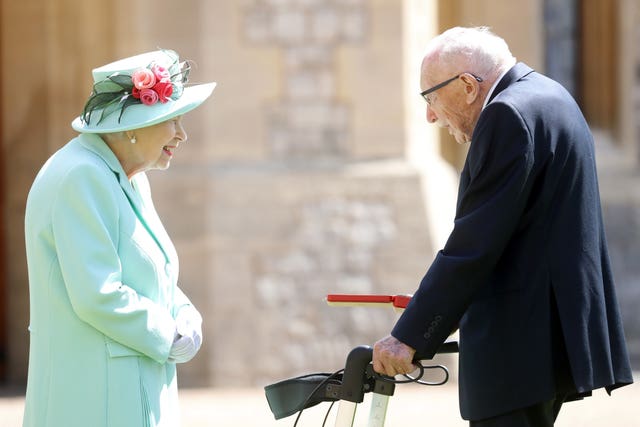
– July 24: Face coverings become mandatory in shops across England, with £100 fines for people who flout the rules.
– July 26: Spain is removed from the safe countries list, meaning travellers returning from the country, including the Spanish islands, will have to self-isolate for two weeks.
– July 27: The National Police Chiefs’ Council says 16,029 fines for alleged breaches of coronavirus regulations were issued by police forces in England and 2,640 by those in Wales between March 27 and July 20.
– July 30: People who test positive for coronavirus or display symptoms must now self-isolate for 10 days as Mr Hancock warns of a “second wave starting to roll across Europe”.
People from different households in Greater Manchester, parts of east Lancashire and West Yorkshire are banned from meeting each other inside their homes or in gardens following a spike in cases.
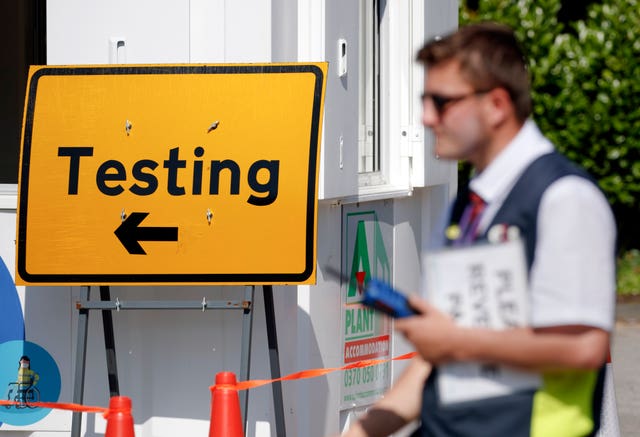
– August 1: Shielding advice for people deemed clinically extremely vulnerable during the peak of the pandemic is paused in England and Scotland.
– August 3: The Government’s Eat Out To Help Out scheme launches, with restaurants, pubs and cafes offering half-price meals to diners during August.
– August 8: Belgium, Andorra and The Bahamas are removed from the list of travel corridors.
– August 13: Thousands of pupils’ A-level results in England are downgraded amid cancelled exams as a result of the coronavirus crisis, due to the regulator Ofqual’s “moderation” algorithm.
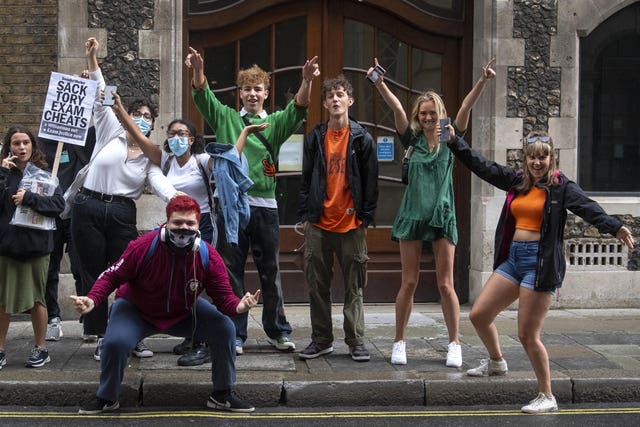
– August 17: A-level and GCSE results in England are to be based on teachers’ assessments of their students, unless the grades produced by the controversial algorithm are higher, regulator Ofqual announces in a major U-turn.
– August 20: Croatia, Austria and Trinidad & Tobago are removed from the travel corridors list, while Portugal is added.
– August 24: The Prime Minister issues a plea to parents to send their children back to the classroom when schools reopen.
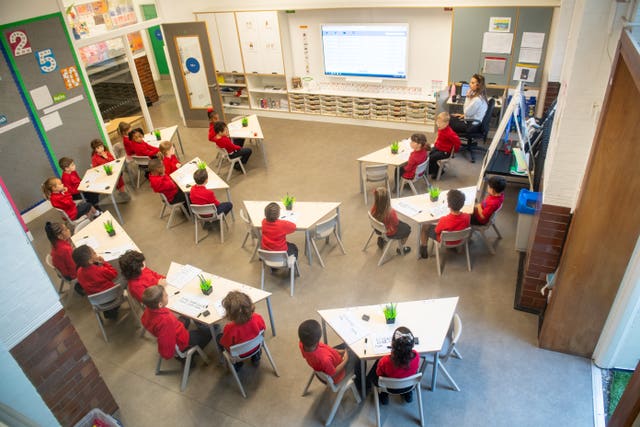
– August 27: Switzerland, Jamaica and the Czech Republic are removed from the Government’s quarantine exemption list.
– August 28: Those facilitating or organising illegal raves, unlicensed music events, or any other unlawful gathering of more than 30 people may now face a £10,000 fine, as tougher measures come into force before the bank holiday weekend.
– August 30: All passengers on a Tui flight to Wales from the Greek island of Zante are told to self-isolate, after at least seven positive cases are identified among three different parties.
– September 6: A further 2,988 cases of coronavirus are reported in the UK – the largest daily figure since May 22.
– September 8: Mr Hancock warns of a possible second peak following a “concerning” rise in the number of cases.
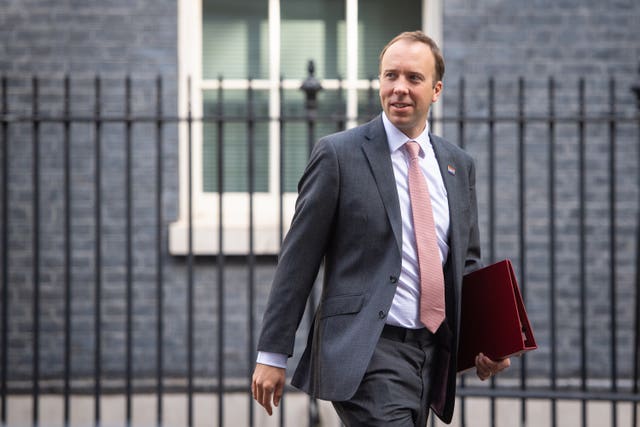
– September 9: Trials of a Covid-19 vaccine under development by AstraZeneca and Oxford University are put on hold owing to a reported side-effect in a patient in the UK.
The Prime Minister outlines the Operation Moonshot approach of mass testing.
– September 11: The R value of coronavirus transmission across the UK rises above 1 for the first time since early March, according to Government advisers, with the estimate between 1.0 and 1.2.
The Government announces that the NHS Covid-19 app is due to launch across England and Wales on September 24.
– September 12: Trials of a Covid-19 vaccine being developed by AstraZeneca and Oxford University resume.
– September 16: Labour leader Sir Keir said he is “pleased and relieved” that a coronavirus test result for one of his children came back negative.
– September 17: Baroness Harding denies that the Test and Trace system is failing but acknowledges that a surge in demand is significantly outstripping capacity.
– September 18: Mr Johnson warns that a second wave of coronavirus has arrived in the UK.
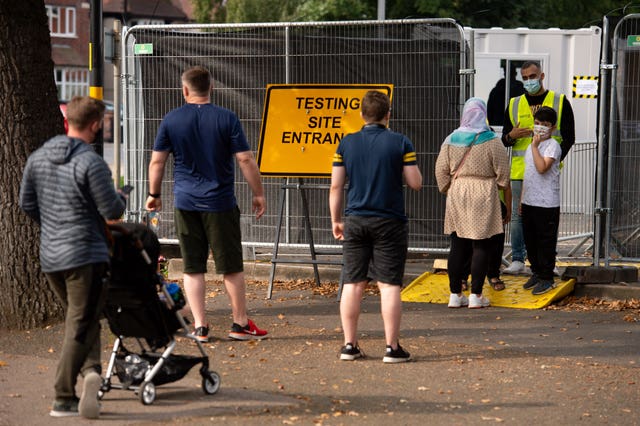
Parts of England’s North West, West Yorkshire and the Midlands face tough new restrictions in response to “major increases” in cases.
– September 19: The Government warns that people in England who refuse an order to self-isolate will face fines of up to £10,000.
– September 21: Chief scientific adviser Sir Patrick tells a televised briefing the UK could see 50,000 cases a day by mid-October and a daily death toll of 200 or more a month later unless urgent action is taken.
– September 22: The Prime Minister prepares to announce new restrictions including a 10pm curfew on pubs, bars and restaurants in England from September 24.
Cabinet Office minister Michael Gove recommends that people now work from home if able to do so.
– September 24: A total of 6,634 new coronavirus cases are recorded, the highest single-day figure so far since the outbreak began.
– October 1: SNP MP Margaret Ferrier has the whip suspended after travelling to and from London to attend Parliament despite experiencing Covid-19 symptoms and later testing positive for the virus.
– October 4: The total number of lab-confirmed cases of coronavirus in the UK passes 500,000, as it emerges that thousands were not included in daily reports due to a technical issue.
– October 9: Mr Sunak announces that workers in pubs, restaurants and other businesses forced to close under new restrictions will have two-thirds of their wages paid by the Government.
– October 12: The Prime Minister launches a three-tier system of local alert levels for England, with the Liverpool City Region the only area to be placed in Tier 3 – very high – category.
– October 15: Greater Manchester Mayor Andy Burnham accuses the Government of treating the North with “contempt” as a row erupts over proposed restrictions in the area.
– October 20: Following more than a week of negotiations, Mr Johnson imposes Tier 3 restrictions on Greater Manchester after talks aimed at reaching an agreement end in acrimony.
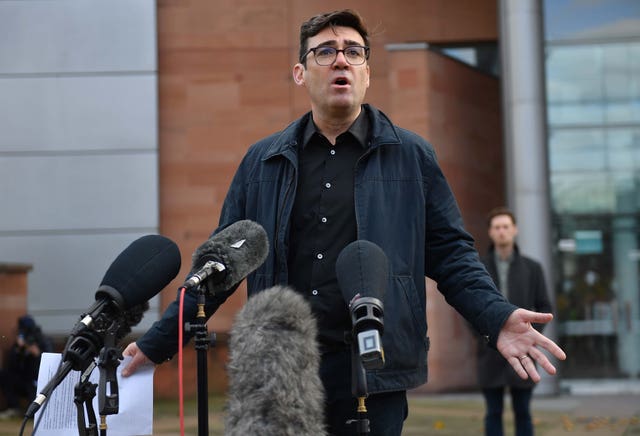
– October 31: The UK exceeds one million lab-confirmed cases of coronavirus since the start of the outbreak, according to Government data.
Meanwhile, Mr Johnson announces that people in England will be told to stay at home for four weeks as the country is placed under another national lockdown, with the closure of hospitality and non-essential shops.
– November 5: Mr Sunak tells the Commons that the jobs furlough scheme is being extended until the end of March in a major Government U-turn.
– November 7: The UK Government imposes a ban on non-UK citizens coming from Denmark following concerns over a new strain of Covid-19 that has spread from mink to humans.
– November 9: Preliminary analysis shows a coronavirus vaccine from companies Pfizer and BioNTech to be more than 90% effective.
– November 11: The British Medical Association (BMA) says it is “vital that lessons are learnt” from the pandemic as the UK coronavirus death toll passes 50,000.
– November 15: The Prime Minister is forced back into self-isolation after a meeting with Tory MP Lee Anderson who subsequently tested positive for coronavirus.
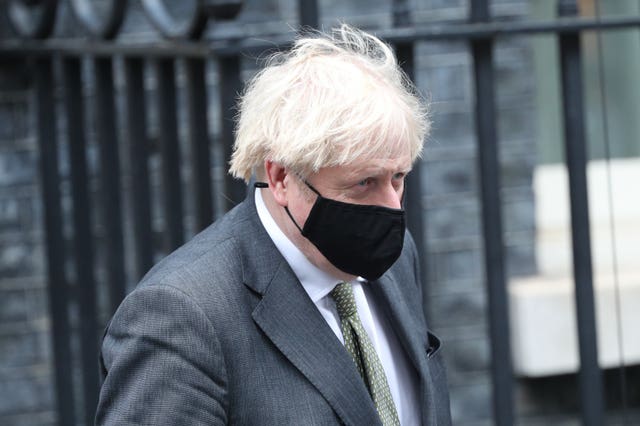
– November 23: Interim data on the Covid-19 jab from AstraZeneca and Oxford University suggests 70% protection, but researchers suggest 90% effectiveness if one half dose is given followed by a further full dose.
– November 24: The UK Government and devolved administrations agree on plans allowing families to reunite over the festive period by forming “Christmas bubbles”.
– December 1: Mr Johnson suffers his biggest Commons rebellion as 55 Tory MPs oppose the introduction of new tiered coronavirus restrictions to replace England’s lockdown, but the measures go through despite the revolt.
Meanwhile, the UK’s Covid-19 death toll passes 75,000.
– December 2: England’s national lockdown comes to an end and is replaced by a strengthened three-tier system.
Meanwhile, the UK becomes the first country in the world to approve the coronavirus vaccine from Pfizer and BioNTech.
– December 8: Grandmother Margaret Keenan, 90, becomes the first patient in the world to receive the Pfizer and BioNTech jab as the NHS launches its biggest ever vaccine campaign.
– December 14: Mr Hancock tells MPs a new strain of coronavirus has been identified in southern England, with the number of cases involving the new variant “increasing rapidly”.
Tougher restrictions are imposed on London and parts of Essex and Hertfordshire following “very sharp, exponential rises” in cases.
– December 17: Mr Hancock announces that Bedfordshire, Buckinghamshire, Berkshire, Peterborough, Hertfordshire, Surrey (with the exception of Waverley), Hastings and Rother (on the Kent border of East Sussex), and Portsmouth, Gosport and Havant in Hampshire will all move into Tier 3 from December 19 – a total of 38 million people which is 68% of the population of England.
– December 19: The Prime Minister cancels Christmas for almost 18 million people across London and eastern and south-east England by moving them into a newly created Tier 4 for two weeks – effectively returning to the lockdown rules of November – after scientists warn of the rapid spread of the new variant VUI 202012/01.
In the rest of England, the planned Christmas easing of the restrictions – allowing three households to meet over the festive period – will be severely curtailed to apply to Christmas Day only. The move is mirrored by the devolved administrations in Scotland and Wales.
The total number of lab-confirmed cases of coronavirus in the UK passes two million since the outbreak began, according to the Government’s dashboard.
– December 20: Mr Johnson timetables a meeting of the Government’s Cobra civil contingencies committee on December 21 to ensure a steady flow of freight into and out of the UK after European countries halt flights and ferry crossings from the UK due to fears about the mutant strain.

